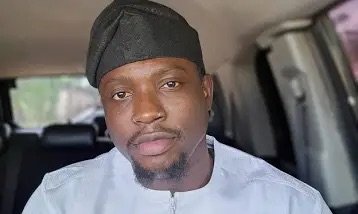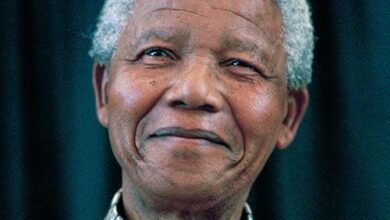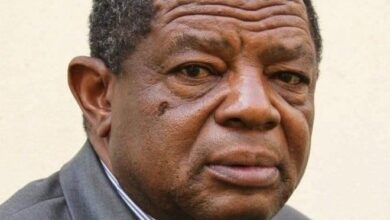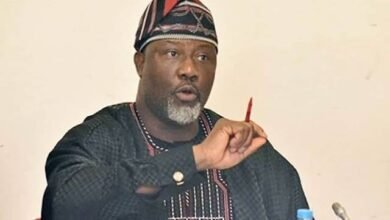Steve Biko Biography: Family, Spouse, Real Name, Career, Net Worth, Age (2025)
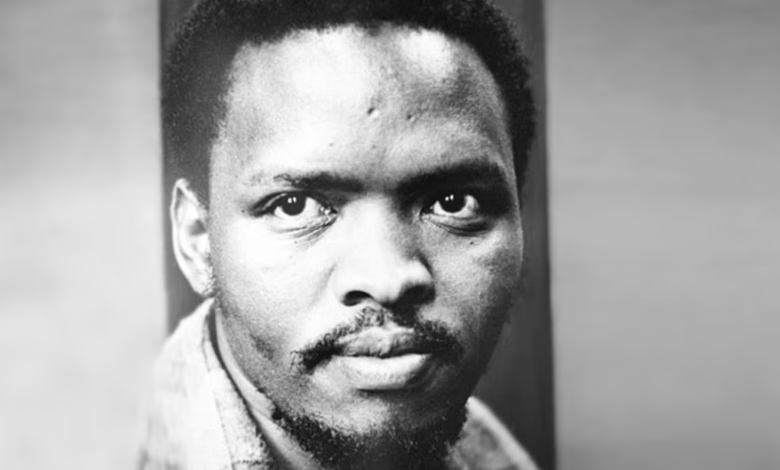
Steve Biko Biography: Steve Biko is one of the most significant and influential figures in the history of South Africa’s liberation movement. Born on December 18, 1946, Biko became an icon for his role in the anti-apartheid struggle and his powerful philosophy known as Black Consciousness. His untimely death at the age of 30 did not silence his message; instead, it amplified it across the world, making him a martyr for justice, equality, and the fight against racial oppression.
Steve Biko’s activism not only challenged the apartheid system but also sparked a global movement that continues to inspire and mobilise activists around the world. His life was short, but his impact was monumental. In this biography, we delve into Steve Biko’s real name, career, family, net worth, age as of 2025, and the lasting legacy he left behind. This article aims to provide a thorough and engaging narrative that not only educates readers but also stands out in search engines by focusing on essential keywords, structuring content effectively, and providing in-depth insights into his life.
Steve Biko Biography
Steve Biko, born Bantu Stephen Biko on December 18, 1946, in Tarkastad, Eastern Cape, South Africa, was a renowned anti-apartheid activist and the founding figure of the Black Consciousness Movement. He is remembered for his courageous and passionate fight against the apartheid regime, which sought to dehumanise and oppress Black South Africans. Biko’s work as an activist and philosopher of self-empowerment left a lasting impact, making him one of the most important figures in South Africa’s liberation struggle.
Biko’s philosophy of Black Consciousness emphasised the importance of Black people reclaiming their sense of identity and self-worth. He believed that mental liberation and psychological freedom were necessary before political and social freedom could be achieved. This movement encouraged Black South Africans to take pride in their heritage and to reject the racist ideologies that were deeply ingrained in society.
In 1973, Biko co-founded the South African Students’ Organisation (SASO), which later led to the formation of the Black People’s Convention (BPC). These organisations became platforms for advocating Black pride and unity in the face of the apartheid regime’s systematic racial discrimination.
Despite being banned by the apartheid government in 1973, Biko continued his activism through writing and clandestine meetings. His writings, particularly in the publication Frank Talk, expressed his vision for a liberated South Africa. His most famous work, I Write What I Like, became a key text for understanding his thoughts on Black liberation and the struggle against racial oppression.
Tragically, Steve Biko was arrested by the police in 1977 and died in custody under suspicious circumstances on September 12, 1977, at the age of 30. Initially, the apartheid government claimed Biko died due to a hunger strike, but later investigations revealed that he had been brutally tortured, leading to his death.
Biko’s untimely death sparked an international outcry, and he became a martyr for the anti-apartheid cause. Today, Steve Biko is regarded as a hero and a symbol of resistance to racial oppression. His legacy continues to inspire human rights movements globally, and the Steve Biko Foundation, established in 1998, works to promote his ideals of social justice, human dignity, and empowerment.
In summary, Steve Biko was not just an activist; he was a visionary who believed that mental and social liberation were key to breaking the chains of racial oppression. His life and work continue to resonate with those who fight for freedom, equality, and justice worldwide.
Steve Biko Full Name
Steve Biko’s full name was Bantu Stephen Biko, and he is widely recognised as Steve Biko. His first name, “Bantu,” reflects his heritage in the Bantu-speaking ethnic group of Southern Africa, which includes various indigenous groups such as the Xhosa, Zulu, and others.
Steve Biko Age (as of 2025)
Steve Biko was born on December 18, 1946, and tragically passed away on September 12, 1977, under mysterious and controversial circumstances at the hands of the apartheid police. Had he lived, Biko would have been 78 years old in 2025. His untimely death was a devastating blow to the movement, but it also solidified his legacy as a martyr for justice.
At the time of his death, Biko was only 30 years old, but his ideas have lived on, continuing to shape movements for equality, justice, and human rights to this day. His legacy has only grown stronger with the years, as more people recognise the importance of his thoughts on race, identity, and self-empowerment.
Steve Biko’s Early Life and Family Background
Birth and Family Origins
Steve Biko was born in Tarkastad, a small town in the Eastern Cape province of South Africa, on December 18, 1946. He was the third of four children born to Mzingaye Biko and Alice Nokuzola Macethe Duna. Steve’s father worked as a clerk in the civil service, and his mother was a cook at a hospital. Growing up in a family with limited financial resources, Steve was instilled with the values of education, resilience, and self-determination by his mother, especially after his father passed away when he was just four years old.
Biko’s mother, Alice, played a crucial role in his life, guiding him through the challenges they faced as a family and encouraging his education. Despite the hardships, his parents worked hard to ensure that their children received the best education available to them at the time.
Early Education and Influences
Steve Biko’s educational journey began at St. Francis College in Natal, where he attended high school. Despite facing the challenges of apartheid, which segregated education and relegated Black South Africans to inferior schooling, Biko excelled academically. His early experiences with inequality shaped his views on the need for a revolution of the mind, as he would later describe it.
Biko’s experiences at Lovedale College in Alice and the University of Natal were pivotal in shaping his political outlook. It was during his university years that he became involved in activism, particularly student activism, which led to his founding of the South African Students’ Organisation (SASO) in 1968. His political awareness and commitment to social change grew as he became disillusioned with organisations that failed to address the specific needs of Black South Africans.
Steve Biko’s Family and Personal Life: Spouse, Children, and Legacy
Marriage and Spouse
Steve Biko’s personal life was deeply entwined with his political activism. He married Dr. Mamphela Ramphele, a medical doctor and fellow anti-apartheid activist, in the early 1970s. Mamphela Ramphele was not just his wife but also a close ally in his fight for social change. The couple shared similar political views, and Ramphele supported Biko’s vision for a free and just South Africa.
Biko and Mamphela had two children together. Their first child, Nkosinathi Biko, was born in the early 1970s, followed by their daughter, Tselane Biko. Both children have grown up with the legacy of their father’s activism, and Mamphela has worked tirelessly to ensure that Steve Biko’s message continues to resonate in modern-day South Africa and globally.
After Biko’s tragic death, Mamphela Ramphele remained an important figure in the anti-apartheid struggle. She has since become a respected figure in her own right, advocating for healthcare, education, and social justice. Together, Biko and Ramphele shared a vision for a better, more equitable society, and their children have continued to uphold that vision.
Steve Biko’s Career and Role in the Anti-Apartheid Movement
Founding the Black Consciousness Movement
Steve Biko’s activism was rooted in his belief that Black South Africans needed to develop a sense of pride in their identity and reject the dehumanising ideologies of the apartheid regime. In 1968, he co-founded the South African Students’ Organisation (SASO), which sought to challenge the status quo by promoting Black unity, Black pride, and Black self-reliance.
Biko’s message was revolutionary at the time, advocating for Black South Africans to reject the notion that they were inferior to white South Africans. Through SASO, Biko promoted Black Consciousness, a philosophy that sought to unite Black South Africans and empower them to take control of their destiny. He argued that true liberation could only come when Black people liberated their minds from the psychological effects of apartheid.
Biko’s ideas were a direct challenge to the apartheid system. His work with SASO and later the Black People’s Convention (BPC) helped galvanise thousands of young people across the country to join the fight for justice.
Influence and Writings
Biko’s ideas were often expressed through his writings, particularly his columns in the newsletter Frank Talk, which he edited. His most famous work, I Write What I Like, compiled his writings and speeches, offering a deeper insight into his philosophy of Black Consciousness. This work was a rallying cry for Black South Africans to reclaim their identity and demand equality.
Biko’s writings were not only influential within South Africa but also internationally. His work has been translated into multiple languages, and his ideas continue to inspire activists and freedom fighters around the world.
Steve Biko’s Arrest, Banishment, and Death
Arrest and Banning by the Apartheid Government
Steve Biko’s activism did not come without a price. In 1973, he was banned by the apartheid government, meaning that he was restricted in his ability to speak, write, and even meet with others. This ban was a strategic move by the government to silence his influential voice and prevent him from spreading the message of Black Consciousness.
Despite the banning order, Biko continued his activism, engaging in secret meetings with fellow activists and continuing to advocate for the rights of Black South Africans. His commitment to justice could not be stifled, even under the harshest conditions.
Death in Police Custody
Steve Biko’s life was tragically cut short on September 12, 1977, when he died in police custody. He had been arrested for his involvement in the Black Consciousness Movement and was subjected to severe beatings by the apartheid police. His death was initially claimed to be a result of a hunger strike, but later investigations revealed that he had been brutally tortured and beaten, leading to his death.
Biko’s death became a symbol of the brutality of apartheid and galvanised international condemnation. His martyrdom sparked a global outcry, and the apartheid regime’s violent response to his activism further fueled the global fight for the end of apartheid.
Steve Biko’s Legacy and Impact on the World
The Steve Biko Foundation
After Biko’s death, his legacy continued to grow. In 1998, the Steve Biko Foundation was established by his family and supporters to promote the values of Black Consciousness and to continue his fight for social justice. The foundation focuses on issues of education, human rights, and social transformation, with the aim of ensuring that Biko’s vision of a free and just society remains relevant today.
Global Influence
Biko’s ideas have transcended borders and continue to resonate with people fighting for equality and justice worldwide. His philosophy of Black Consciousness, which promotes the idea that Black people must first free themselves mentally before achieving political freedom, remains an important tool for social movements.
Conclusion: Steve Biko’s Enduring Impact
Steve Biko’s short life and powerful ideas left an everlasting legacy that continues to inspire the fight for racial justice and human rights. His contributions to the liberation movement in South Africa and his development of the Black Consciousness Movement have made him an iconic figure in the global struggle for equality. Even today, in 2025, Steve Biko’s work serves as a reminder of the ongoing fight against oppression and the importance of embracing one’s identity and dignity.
Call to Action
If Steve Biko’s story has inspired you, take the time to explore his writings and learn more about his impact on both South Africa and the world. Share his message of empowerment, justice, and equality, and let his legacy inspire change in your community.

